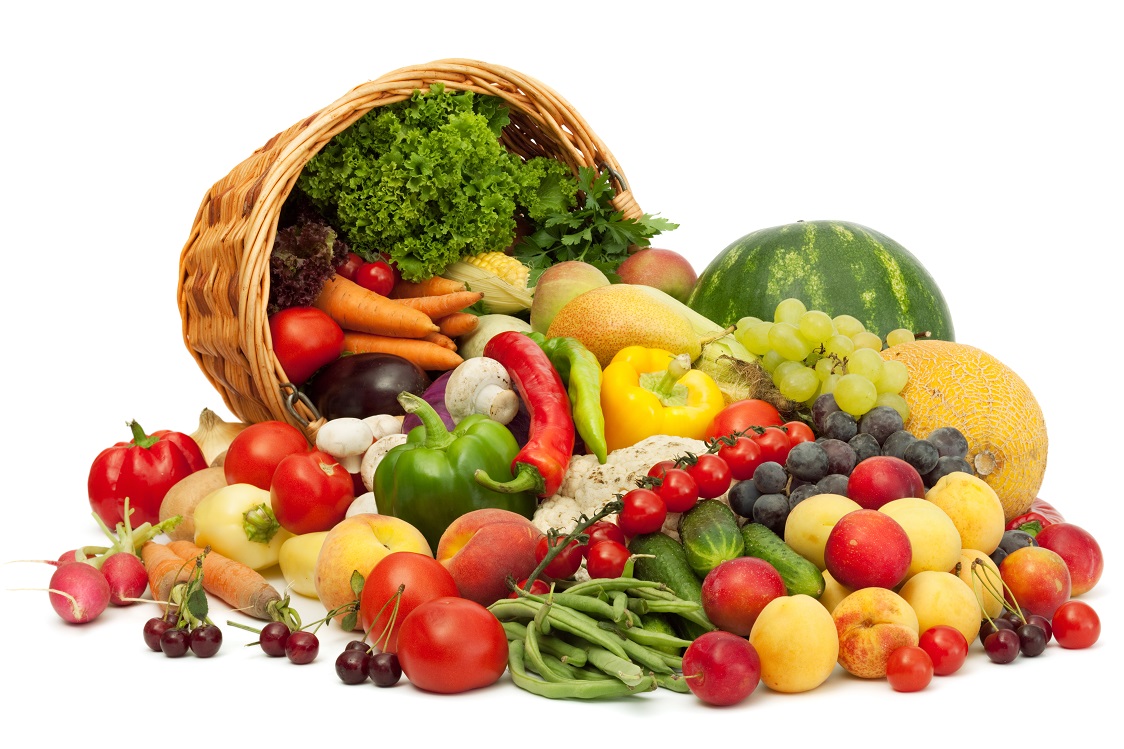The Healthy Diet
Much illness can be prevented or improved
by implementing a healthy diet.
The mind and body are wonderfully capable of resisting disease and healing themselves when given proper opportunity through a healthy diet. However, many of us are eating the SAD Standard American Diet which is linked to extremely poor health.
Ideally, we want our health span to last as long as our life span. Read that again and let it sink in.
So, keep in mind that we are either feeding health or we are feeding disease - it is our choice with every bite.
But what is a healthy diet?
These days you can read convincing books that proclaim the benefits of a wide variety of diets. Some diets advocate for a plant only diet while other diets advocate an animal only diet. And then there is everything in between.
It sure gets confusing.
STOPS
However, all of these diets out there generally have one thing in common; they start by eliminating the STOPS which create disease. Yep, we cannot improve our health and eliminate disease if we are not giving our bodies optimal fuel and nutrients.
What are these STOPS?
- Refined carbohydrates (white sugar, white
flour, white rice)
- Gluten and gluten grains (wheat, semolina, durum, einkorn, spelt, kamut, faro, rye, barley)
- Industrialized omega-6 seed oils (soybean, canola, safflower, corn, etc)
- Tobacco (all forms), alcohol, and caffeine (caffeine in green tea is OK)
- Preservatives, additives, artificial colors and flavors
- Pesticides
- Added processed salt (such as the Morton girl salt)
- Pickling and cured foods
- Artificial sweeteners
- Fluoridated water and toothpaste
- High fructose corn syrup
- Genetically-modified organisms (GMOs)
- Oxidized cholesterol (powdered eggs and milk, skim and low fat milk)
- 3D printed meat (yes, it really exists!)
Some people may have dietary restrictions due to allergies, intolerances, illnesses, and diseases.
So,
please eliminate any of these foods as needed for your own individual needs.
Some folks prefer to stop the STOPS cold turkey while others
prefer to gradually eliminate them over time to ease through the
transition.
BASIC BALANCED DIET
Now, let's talk about what to eat.
Initially, it is best to eat balanced meals consisting of moderate
amounts of all food groups rather to eat any of the more restrictive
diets. Later, we will tweak this plan specifically for you.
Since it may be difficult to follow this initial plan immediately, you may want to make a series of small steps gradually as you travel the healthy path.
Here is a summary of a Basic Balanced Diet:
- Eat a widely varied diet of fresh and whole foods mostly in their natural state with none to minimal processing.
- Emphasize fresh, organic, and raw fruits and vegetables daily. Vegetables may be cooked until raw can be tolerated. Fermented vegetables are also excellent. Use a variety of colors as follows:
- RED foods: anti-cancer, anti-inflammatory, cell protection, gastrointestinal health, heart health, hormone balance, liver health
- ORANGE foods: anti-cancer, anti-bacterial, immune health, cell protection, reduced mortality, reproductive health, skin health
- YELLOW foods: anti-cancer, anti-inflammatory, cell protection, brain health, eye health, heart health, skin health, vascular health
- GREEN foods: anti-cancer, anti-inflammatory, brain health, cell protection, skin health, hormone balance, heart health, liver health
- BLUE/PURPLE/BLACK foods: anti-cancer, anti-inflammatory, cell protection, brain health, liver health
- WHITE/TAN/BROWN foods: anti-cancer, anti-microbial, cell protection, gastrointestinal health, heart health, hormone balance, liver health
- Add some raw nuts and seeds. (Most should be soaked prior to eating for better digestibility.)
- Use olive oil, coconut oil, almond oil, avocado oil, organic butter, ghee, tallow. Avoid margarine, shortening, partially hydrogenated oils, and polyunsaturated oils (canola, soy, safflower, corn, etc).
- Add some wild fish, poultry, meat, and eggs from organic, range animals if wanted. Organic organ meats are also nutritious.
- Add some legumes and gluten-free grains (quinoa, brown rice, millet, buckwheat, amaranth, sorghum, some oats).
- Add some milk, yogurt, cheese, kefir, and cottage cheese from whole organic milk (preferably raw) if not dairy intolerant (usually due to casein sensitivity or lactose intolerant or dairy.)
- Add culinary herbs, herbal teas, spices and salts (such as Himalayan, Celtic, or sea salt) as needed.
- Drink 6-8 glasses (8 oz per glass) of high quality water (such as PENTA, distilled or reverse osmosis, Berkey filter) daily. The Berkey filter is is classified as a purifier because it does such an awesome job at filtering out impurities including viruses, bacteria, parasites, and harmful chemicals to below detectable levels. Dr. Bazylewicz used a Big Berkey prior to her current well and a Go Berkey when traveling.

In order to improve mineral regulation (which should be a goal for everyone), make sure to emphasize these foods:
- Magnesium rich foods: nuts (cashews, Brazil, almonds), seeds (sunflower, pumpkin, chia, flax, hemp), darky leafy greens (mustard, collard, beet, chard), legumes (black beans, lentils, chickpeas), whole grains (oats, barley, buckwheat, quinoa), fish (halibut, salmon, mackerel), etc
- Bioavailable Copper rich foods with vitamin A (retinol): grass-fed beef liver (7 oz per week OR 1 oz per day if not taking a liver supplement), beef, bison, lamb, goat, venison, pork, rabbit; organic eggs, grass-fed butter, cheese, cream cheese, goat milk; salmon, tuna; shrimp, herring, etc
- Wholefood Vitamin C Complex Foods: citrus, berries, cantaloupe, papaya, guava, kiwi, cruciferous veggies (broccoli, cauliflower, kale, Brussels sprouts, etc), red peppers, etc
UPGRADES
After eliminating the STOPS and eating a Basic Balanced Diet, it is time to consider upgrades to your diet if you prefer.
Carbohydrates
If you are trying to reduce inflammation or lower your cholesterol or improve your health, then consider eating less carbohydrates: grains, beans, starchy veggies.
Carbohydrates are broken down to simple sugars especially glucose. When our bodies burn glucose for fuel, then advanced glycation end products (AGEs) are formed. These AGEs occur when sugar combines with fats and proteins creating dangerous compounds that accumulate over time and that cause harmful oxidative stress and inflammation.
Furthermore, excess glucose is stored as triglycerides which leads to heart disease, fatty liver, obesity and more.
And who wants more oxidative stress and inflammation? No one!
Several diets exist which have way lower carbs than the standard American Diet and the Basic Balanced Diet, such as paleo, keto, ketovore, carnivore in order of decreasing carbs. These diets are all a form of an ancestral diet.
Figuring out the specific amount of carbs and fats is individualized: each person will need different amounts according to their own personal biochemistry. When you reduce carbs to your preferred level, you will eat about the same amount of protein, but higher amounts of healthy fats as a clean energy source.
Dr. Bazylewicz will help you with your own personalized anti-inflammatory diet during your appointments.
Plants
Another consideration is that plant toxins may be making you ill. Yep! Kids may inherently get it right when they refuse their veggies.
But we have been taught that we need all of the wonderful antioxidants and fiber that are contained in plants, right? Well, we have not been taught that these same plants contain dangerous toxins and that most plants do not want to be eaten and have developed chemicals that are toxic to humans. Others (phytates) bind to nutrients and diminish absorption.
And these plants irritate the intestine causing various distress such as constipation, diarrhea, bloating, gas, heartburn, etc. Interestingly, we do not need to eat fiber when plants are eliminated from our way of eating.
Yes, this subject is highly controversial. However, an elimination trial for any/all of these food
groups may alleviate many symptoms:
- high oxalates
- high nightshades especially tomatoes, potatoes, eggplant, and peppers (including black pepper, chili pepper, and paprika), goji berries.
- high lectins especially whole grains, soybeans, tomatoes, potatoes, eggplant, lentils, red kidney beans, peanuts, corn, nightshades (see above).
- high phytates especially almonds, beans, lentils, peanuts, corn, wheat, red kidney beans, soybeans.
- high histamines which include fermented, processed, cured, smoked, pickled, vinegar, alcohol, energy drinks, soft drinks, preservatives, dyes, veggies (avocado, tomato, eggplant, spinach), fruit (strawberries, most citrus), overripe foods, leftovers (more than 2-3 days).
Dr. Paul Saladino delves into this issue in depth in his book called The Carnivore Code. Using good medical research, he shows the flip side of plants that we have not been told about which affect some people more than others.
Emotional Eating and Goals
But what to do about emotional eating? You are not hungry, but you want chocolate or chips or cake or some other addictive and unhealthy food. And not just a little. No, you want a lot!
Emotional eating is not about food; there are underlying issues that need to be worked out. Dr. Bazylewicz highly recommends Heather from Inspirina.
Goals
Addressing and incorporating the above changes to your diet can be difficult and progress may be slow as your body adapts to a healthier way of eating. After all we are trying to overcome a life time of habits.
Dietary goals (and all health goals) should be SMART! Slow and
steady progress will get you to your finish line and keep you there!
- S - specific
- M - measurable
- A - action-oriented
- R - realistic
- T - timely
A life coach is invaluable in helping you to align with your intentions. I highly recommend life coaching with Sierra from Lyme Light Coaching as your partner in meeting your dietary and health objectives.
Dr. Bazylewicz wishes you much success with your healthy diet!
Let food
be thy medicine,
and medicine
be thy food.
~Hippocrates
DANDELION
Your word
is a lamp
to my feet
and a light
to my path.
~Psalm 119:105
ECHINACEA
The secret of health
for both mind and body
is not to mourn for the past,
worry about the future,
or anticipate troubles,
but to live in the present moment wisely and earnestly.
~Buddha (paraphrased)
LAVENDER



